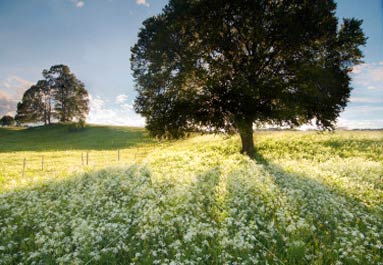Six People You Should Have on Your Team Before Submitting an Offer
1. Local lawyer.
Every buyer should talk with and retain a local lawyer before buying country property. This individual can provide invaluable knowledge and advice. An out-of-town buyer may want to have his local lawyer negotiate with the local seller. Talk with your lawyer about possible legal issues that might arise with particular properties.
2. CPA.
A CPA can help you figure out the seller’s numbers—his basis, equity, remaining debt, appreciation and after-tax income from your offer. He can help you determine what the property is worth and whether it’s priced fairly in terms of itself and the current market. He can help you set up your purchase in the most tax-advantaged way. If you’re buying a working farm, he can help you analyze the seller’s financial information.
3. Surveyor.
It’s unlikely that you will need to survey the seller’s property before making an offer. But it may be advisable to have a surveyor walk the boundary lines with the seller’s deed in hand to make sure the lines on the ground match up with the language in the deed. A buyer should have his surveyor draw the deed’s boundary calls on a topographical map. This will determine both acreage and boundary closure.
4. Consulting Forester.
If your seller’s property contains more than five acres of woods, it’s worth asking a consulting forester to do a walk-through to determine its commercial value, if any. The consulting forester will determine the merchantable value of the seller’s timber, i.e., the likely current sales price in light of volumes, species and quality. You can use this number—or not, depending on what it is—in your negotiations with the seller. You can also use it to establish your basis in the timber for tax purposes.
5. Local advisor.
It’s always useful to know someone who is both locally knowledgeable and in your corner. Your local lawyer may be this person; the seller’s real-estate broker is not.
6. Property-specific consultants.
In addition, you may find yourself in need of advice from a soils engineer (if you have to find a septic-system site), physical engineer (if you have to build a bridge or construct a septic system), home inspector, architect, appraiser, environmental consultant (if you’re faced with a problem or liability), excavator, contractor, carpenter, farm consultant (to help evaluate a farming operation), farmer (if you have to evaluate farm buildings, systems and equipment), soils consultant (particularly if you’re going organic), neighbors (who can tell you a lot about your seller’s property and any claims or grievances they have) and environmental specialists (if you’re dealing with asbestos, mold, radon, water pollutants and the like).
|









